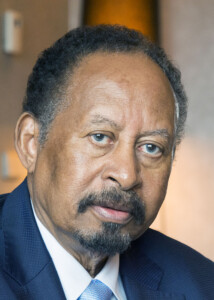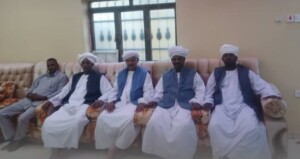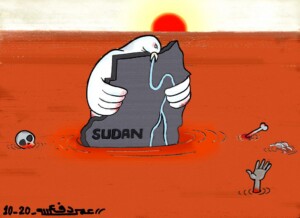Sudan peace talks: Four disputed issues
The Sudan Revolutionary Front (SRF) rebel alliance and representatives of the Forces for Freedom and Change (FFC) entered into intensive talks on Thursday and Friday, on how the FFC can participate in the negotiations in Juba.
 Juba Peace negotiations (Social media)
Juba Peace negotiations (Social media)
The Sudan Revolutionary Front (SRF) rebel alliance and representatives of the Forces for Freedom and Change (FFC) entered into intensive talks on Thursday and Friday, on how the FFC can participate in the negotiations in Juba.
On August 25, Radio Dabanga reported that the leaders of the FFC refused granting the Sudan Revolutionary Front (SRF, a coalition of armed movements) the posts of two members of the Sovereign Council on the ground that they rejected the idea of quotas. Also, on November 8, this station reported that the negotiating parties agreed on appointing new state governors after a peace accord has been reached.
SRF Chairman El Hadi Idris told Radio Dabanga that four fundamental disputed issues between the SRF and FFC are on table for discussion; namely, the postponement of the appointment of state governors until after a peace agreement is reached, postponement of the formation of the Legislative Council, the suspension of the appointment of civil service employees, and the amendment of Article 70 of the Constitutional Document.
Idris explained that they asked the FFC to amend Article 70 in the Constitutional Document to include all peace agreements reached therein. After its amendment, Article 70 should be a reference in the transitional period, to prevent any further dispute.
He further said that they asked the FFC as ruling entity of the transitional government to authorise the Sudan Sovereign Council and the Council of Ministers to negotiate on behalf of the government in Juba.
Declaration of Freedom and Change
Idris asserted that the SRF is an integral part of the Declaration of Freedom and Change, announced in a video message on January 1. Hence SRF must actively participate in decision-making with the FFC.
He explained that direct negotiations on the Two areas (South Kordofan and Blue Nile state), and eastern, northern, and central Sudan have started. However, the peace talks on the Darfur track will be started in the coming days. It has been agreed that the rebel delegation will prepare a comprehensive paper regarding the outstanding issues within 48 hours.
Bridging the gap
The Deputy Chairman of the Sudan Sovereign Council, Mohamed Hamdan ‘Hemeti’ presided over a meeting that included leaders from the SRF and the FFC to bridge the gap between the two parties.
Mohamed Daoud, member of the SRF Presidential Council and head of the Kush movement, clarified that the meeting was initiated by Hemeti. He explained that the disputed points include the decision-making mechanism in the FFC, the FFC’s insisting to appoint civilian states governors, and timetable for the formation of the Legislative Council. The points are inconsistent with the Juba Declaration of Principles that signed by the negotiating parties last October in Juba.
On Thursday, the mediation team suspended the negotiations between the government and the Sudan People’s Liberation Movement-North faction led by Abdelaziz El Hilu (SPLM-N El Hilu) until Saturday, because some technical issues were incomplete.
The head of the mediation committee, Tut Galuak, told reporters after the session between the government and SPLM-N El Hilu that the negotiating parties discussed the negotiation agenda and formed a drafting committee to unify their visions. In the next session a framework agreement is expected to be reached, he said.
Galuak stated that Sudan’s problems need comprehensive solution that can include all Sudan’s regions. He further stressed that there are no fundamental differences on any of the issues raised, but the negotiating parties think that there is a need for more time to resolve some basic issues, especially the issue concerning the relationship between the state and religion.
Radio Dabanga’s editorial independence means that we can continue to provide factual updates about political developments to Sudanese and international actors, educate people about how to avoid outbreaks of infectious diseases, and provide a window to the world for those in all corners of Sudan. Support Radio Dabanga for as little as €2.50, the equivalent of a cup of coffee.












 and then
and then